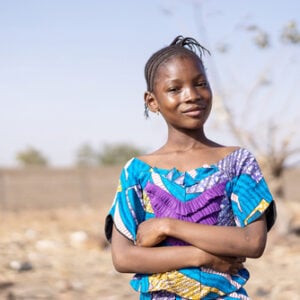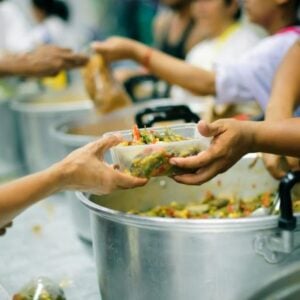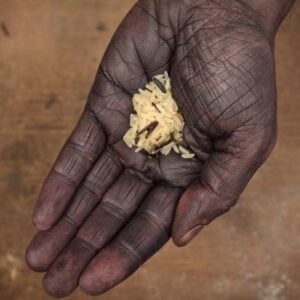Africa is facing its most severe hunger crisis in decades, with over 282 million people affected as of July 2025—more than one in five across the continent. The crisis is driven by a combination of climate shocks, economic instability, and ongoing conflicts, severely impacting regions from drought-ridden Southern Africa to famine-threatened communities in the East. Despite the scale of the challenge, there remains hope through durable, community-led solutions designed to empower people and build resilience against future crises.
Gilbert Phiri, senior coordinator for the Africa region Zero Hunger Initiative at IFRC, stresses that ending hunger requires more than emergency aid; it demands sustainable interventions that strengthen communities’ ability to feed themselves over the long term. He highlights the worsening hunger and malnutrition trends across Africa in 2025, driven by interconnected climate, economic, and conflict factors. Without coordinated global action and investment in resilient food systems, millions risk chronic hunger and life-threatening malnutrition.
Almost every African region is affected by hunger. West and Central Africa face record levels, with over 52 million people enduring food shortages during the 2025 lean season. Southern African countries such as Zimbabwe, Zambia, Malawi, and Namibia are experiencing acute food insecurity among up to 40% of their populations due to environmental and economic shocks. East Africa remains the hardest hit, with over 69 million people facing acute food insecurity. The broader East and Horn of Africa region, including Sudan and South Sudan, has over 85 million highly food-insecure individuals. Malnutrition rates are alarmingly high, with some countries having one in three children malnourished, particularly in Somalia, Chad, Zambia, Uganda, Kenya, and Guinea-Bissau.
The scale of the crisis is staggering, with more than 307 million Africans affected by hunger as of mid-2025. Childhood stunting averages 30.7% continent-wide, and wasting affects 6% of children. However, addressing hunger is not only about recognizing the numbers but also about rethinking responses. Durable solutions, as defined by Phiri, are sustainable, systemic, and resilient to future shocks caused by climate, conflict, or economic challenges. These solutions require innovation, inclusivity, and coordination, building resilience at the individual, community, and agency levels.
Durable solutions differ from short-term aid by focusing on the root causes of hunger, empowering communities, and creating systems that last. They integrate sectors such as health, education, agriculture, and economic development to enable people to sustain themselves year after year. An example is the Village Model project supported by IFRC, which brings households together to improve food security, livelihoods, and resilience through shared resources, skills, and mutual support. This model combines sustainable agriculture, savings groups, and social cohesion to create self-reliant villages capable of withstanding future crises.
Community ownership is essential to the success of these interventions. When communities lead, design, and manage solutions, they are more likely to be sustainable and scalable. In Rwanda, community-managed livestock schemes thrived because members reinvested in one another, while in Nigeria, men supported mothers’ clubs after seeing benefits for their families. Local ownership fosters confidence, skills, and social networks that help spread successful models, creating a multiplier effect through local champions.
To scale these durable, community-led solutions, significant support is urgently needed. There is a substantial financing gap, estimated at $21 to $77 billion annually from public sources alone, with even more required from private investments to transform food systems across Africa. Current funding levels are insufficient to reach all communities in need. Stable, multi-year funding is critical to allow community-led projects to take root, grow, and demonstrate lasting impact. Alongside financing, enabling policies, stronger government-community coordination, expanded social protection, and access to climate-smart agriculture and technology are necessary to support these efforts.
The fundamental message for donors and partners is that sustainable, community-driven solutions—rather than short-term fixes—are the only effective way to end hunger. While emergency aid saves lives, it does not address the underlying causes of food insecurity, such as poverty, fragile food systems, and climate change. Durable approaches have shown success but remain underfunded and constrained by rigid policies. The mindset needs to shift from asking how to feed people today, to ensuring they can feed themselves every year going forward.
Ending food insecurity in Africa requires collective action. The Africa Zero Hunger Campaign invites stakeholders to join efforts in building resilient, self-reliant communities capable of overcoming hunger and malnutrition for generations to come.







